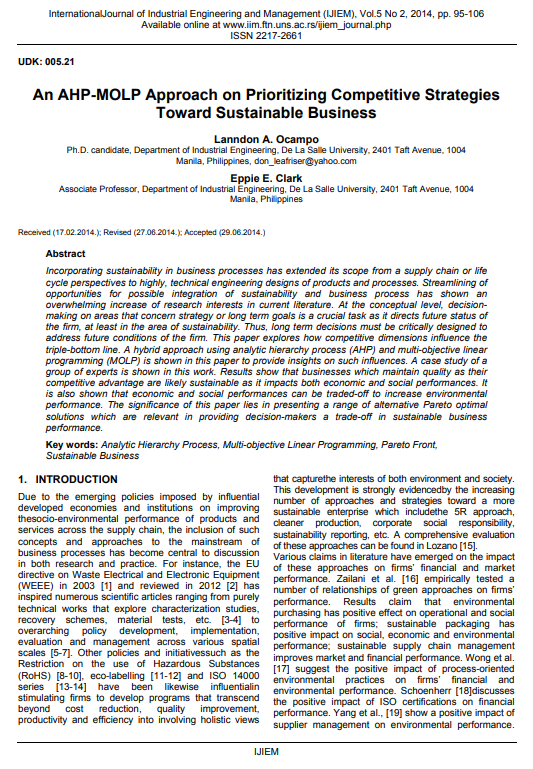An AHP-MOLP Approach on Prioritizing Competitive Strategies Toward Sustainable Business

Published 2014-06-30
abstract views: 575 // FULL TEXT ARTICLE (PDF): 0
Keywords
- Analytic Hierarchy Process,
- Multi-objective Linear Programming,
- Pareto Front,
- Sustainable Business
How to Cite
Copyright (c) 2023 International Journal of Industrial Engineering and Management

This work is licensed under a Creative Commons Attribution 4.0 International License.
Abstract
Incorporating sustainability in business processes has extended its scope from a supply chain or life cycle perspectives to highly, technical engineering designs of products and processes. Streamlining of opportunities for possible integration of sustainability and business process has shown an overwhelming increase of research interests in current literature. At the conceptual level, decision-making on areas that concern strategy or long term goals is a crucial task as it directs future status of the firm, at least in the area of sustainability. Thus, long term decisions must be critically designed to address future conditions of the firm. This paper explores how competitive dimensions influence the triple-bottom line. A hybrid approach using analytic hierarchy process (AHP) and multi-objective linear programming (MOLP) is shown in this paper to provide insights on such influences. A case study of a group of experts is shown in this work. Results show that businesses which maintain quality as their competitive advantage are likely sustainable as it impacts both economic and social performances. It is also shown that economic and social performances can be traded-off to increase environmental performance. The significance of this paper lies in presenting a range of alternative Pareto optimal solutions which are relevant in providing decision-makers a trade-off in sustainable business performance.
Article history: Received (17.02.2014); Revised (27.06.2014); Accepted (29.06.2014)

